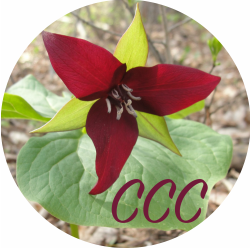What others are saying about the CCC approach
"Notes From the Field": CCC articles from music teachers
Getting Started with CCC in your School Ensemble by Josh Cushing, Montville HS in Oakdale, CT
|
Music student at Doane University, Nebraska:
It's really interesting that we got to see Dr. Caron Collins present about Curious, Collaborative, and Creative the other day because I think it really applies to the reading*. I really liked how she gave the students in the Wind Ensemble a lot of the power and allowed us to make our interpretation of the music instead of learning the conductor's interpretation. It allowed us to take more ownership with our playing and I was much more engaged! Her exercise of having us create gestures that resembled our interpretation of the piece was very authentic and made a huge difference. I am excited to use this in my classroom when I graduate. * Abeles, H. F., & Custodero, L. A. (2010). Critical issues in music education: Contemporary theory and practice. New York: Oxford University Press. Student-Teacher in Canton, NY
CCC was an entirely different way of thinking that I had not previously encountered. Reflecting on how I was taught, it's difficult to change your point of view and relinquish control of the class and allow the class to drive the instruction. CCC transforms a typical band setting into a living, breathing educational experience. Rather than simply playing through a piece, students will react to the music by either creating something new, responding in a personal way, or performing the music in an unorthodox format. This musical enrichment helps students develop critical thinking skills and come away with a more memorable experience. The students enjoy taking charge of the curriculum and driving their learning in the direction they want to go. It can be tough at first to release control, but the final product takes on a life of its own, and it is truly as irreplaceable experience. Professor at The Crane School of Music:
In the current climate of accountability in education, music educators are increasingly asked to make visible and document student work and understanding. Music educators are asked to be accountable for learning processes as well as outcomes in artistic performances. In efforts to more effectively define, describe, and document the processes underway in music education, new standards are under development. The CCC framework for comprehensive musicianship in band aligns well to the new music education standards in performing, which are new in terms of being recently adopted, but which reflect longstanding values and interests in the field. |
Adult community musician at SUNY Potsdam, NY:
I'm sixty-nine years old, and one of the “seniors” in the Crane Campus Community Band, on trumpet and bass guitar, and I’m immensely enjoying being there. The Band, and Dr. Collins, introduced me to the Curious, Collaborative, Creativity approach, a whole new approach to music learning and performance, a “holistic” approach that went far beyond the “learn the notes and the dynamics, and do it” model. From the start of my first “season” with the band, seeing videos of volcanoes, watching a dance demonstration, etc., and considering what the composer felt and had in mind, and actually giving thought to how it made us feel, and how to express that in our music, to the sensation of playing bass guitar along with an electric guitar and a drum set in the middle of the huge concert band, the approach has brought new experiences constantly in the organization, preparation, and “Informance”– and this new approach carries over into a greater understanding and appreciation of many other musical experiences (I have never thought about, say, the Rolling Stones or Hank Williams, this way before). This continually expands one’s understanding of music as a living medium, with history, context, emotional ingredient, and intellectual components – not just as all those sharps and flats and crescendos and legatos and . . . I am privileged to have had the experience.” |

